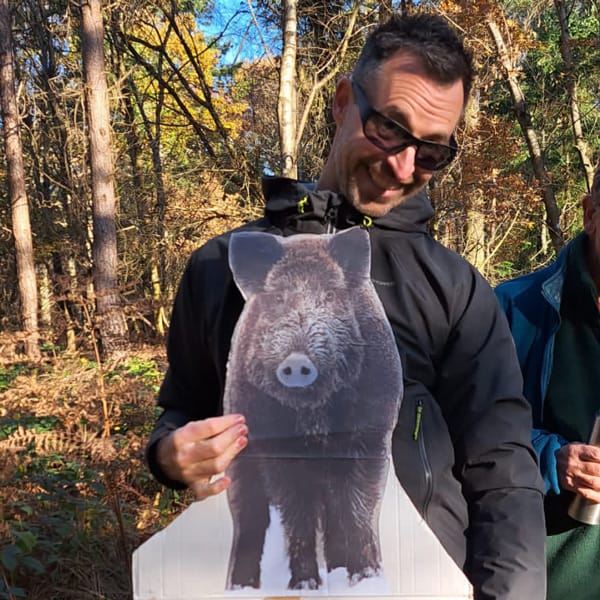Dylan Walker
Dylan Walker describes himself as part entrepreneur, part ecologist, and part educator.
Dylan Walker runs an ecological consultancy called Wilderlife (wilderlife.org) which focuses on imaginative ways to reinvision nature and our place within it.
He was always interested in nature when he was a child. His big thing was making ponds, and he’d make them out of plastic bin liners, or orange boxes. His Dad was into butterflies and when he was growing up, so he spent a lot of time with adults who knew a lot about nature. Looking back, they were mentors, but he already had the bug. He was average at school, messed around but also worked hard, and did an Ecology Degree at Sheffield University.
When he left University, he got a job as a wildlife tour guide in the Highlands of Scotland, thinking it would be a stopgap, but it changed his life. He enjoyed taking people out to see wildlife and seeing how they responded to shared experiences with nature.
He then spied an opportunity to run his own whale watching business, taking people on a ferry between England and Spain across the Bay of Biscay. People said it couldn’t be done but he ended up running the business for 10 years, conducting citizen science research and even being the first to identify a new species of whale! It was an amazing time. As part of their efforts, he co-founded a charity called ORCA which still trains volunteers and conducts research on ferries and cruise ships today.
By ten, he was firmly hooked on whales and dolphins and ocean conservation and did a Master’s in Marine Mammal Science and got together with an old friend and decided to run a Whale Festival. The idea was to bring together as many people interested in cetaceans from around the world and talk about how we could work more collaboratively. In the end they ran 4 festivals in Brighton, the biggest of which, in 2015, attracted 15,000 people. It was the catalyst for a new charity – a global partnership of organisations and tourism businesses wanting to protect marine mammals – called the World Cetacean Alliance.
He ran the World Cetacean Alliance as CEO for 8 years which was amazing and exhausting, and left it with around 100 partners in 33 countries. He went freelance and continued working on community driven nature conservation initiatives, most notably Wildlife Heritage Areas, an initiative of a charity called World Animal Protection. The idea is that communities can come together and designate their own places as being of wildlife significance, and they help them plan ways to better protect them in harmony with their communities.
Dylan is also part of a community movement in East Sussex to develop a People’s Park for Nature, which aims to create a network of green spaces managed by local communities for nature restoration, public engagement, and cultural activities.

